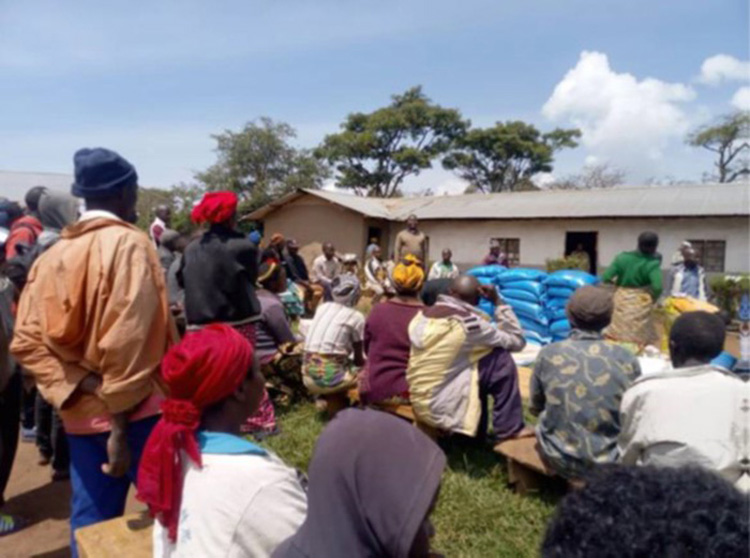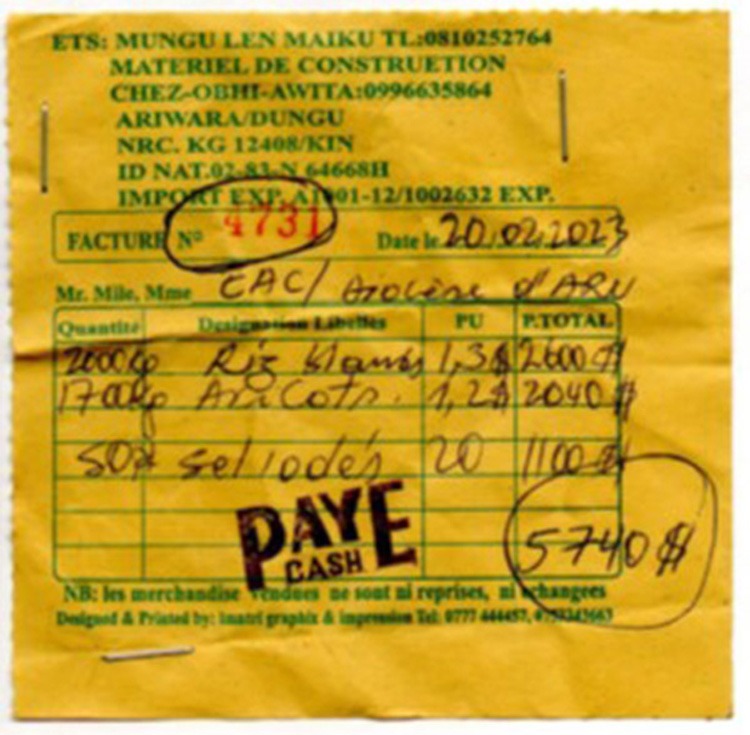Emergency Food Relief reaches people affected by conflict and displacement in the Democratic Republic of Congo
People in the Democratic Republic of Congo (DRC) are affected by many complex conflicts.
Most of us will remember the tragedy that was the War in Rwanda during the 1990s, and especially the 1994 genocide. Groups involved in that conflict are among the more than 120 armed groups now fighting for control of valuable mineral resources in North Kivu province of DRC and its neighbouring province of Ituri. Though this conflict has raged through most of the twenty-first century and led to the deaths and displacement of millions, it rarely receives coverage in western media.
Since there are no camps for the people who are displaced by this conflict, the Anglican Church in DRC encouraged its members to welcome and house displaced people who fled to their area. The church members agreed to receive and house the newcomers and to share with them their natural resources including water sources and firewood.
After identifying and locating those who would benefit from the food relief, the church analysed their needs and the vulnerability levels of the different groups. Among the most vulnerable people were pregnant and lactating women, children, people with disabilities, illiterate people, and ethnic minorities under threat.
Of the 5,831 people identified, 1,855 people, including 1,230 children, received emergency food as a result of AID’s assistance, sent in late 2022. This food comprised rice, beans, and salt. As the conflict continued, and was coupled with floods and landslides in May 2023, AID sent further assistance in May 2023.
Sadly, what AID could send to the Anglican Church in DRC (through our partnership with CAPA, the Council of Anglican Provinces of Africa) was only a drop in the ocean compared with the huge need that is there.
AID was able to provide this support through its rapid emergency response fund. This fund is made up of any funds raised in excess of needs for other emergency appeals. Having the funds in readiness enables AID to make a quick assessment of the situation via the local partner, and to send a modest amount of funding when and where it is needed most, largely to emergency responses being made by Anglican church partners around the world.

People waiting for food relief funded by ABM AID. © Anglican Province of Congo. Used with permission.
